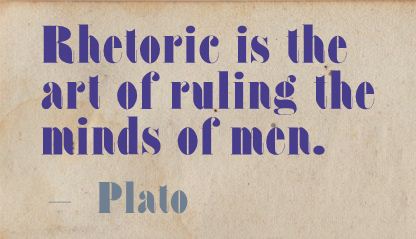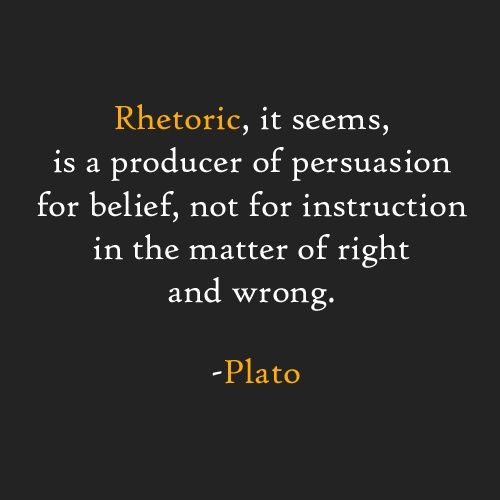Critical Thinking
Rhetoric
 Rhetoric can be used in a number of less obvious ways than those outlined in the previous section. It often trades upon the vagueness or ambiguity of a word or expression. The classic example here is ‘one person’s freedom fighter is another person’s terrorist’.
Rhetoric can be used in a number of less obvious ways than those outlined in the previous section. It often trades upon the vagueness or ambiguity of a word or expression. The classic example here is ‘one person’s freedom fighter is another person’s terrorist’.
XXX
The term ‘freedom fighter’ is positively charged. A questionable activity is paraded as being morally commendable, even heroic. However, the term ‘terrorist’ is negatively charged. It implicitly forces us to consider the actions of such a person as morally reprehensible, regardless of whether this is in fact so.
XXX
In this respect and depending on wording, such expressions can be said to possess either an emotive content - one that is emotionally charged, or, by contrast, a neutral or cognitive content which captures the expression’s actual meaning. For example, the term ‘political activist’ might be regarded as a more neutral translation here, insofar as it does not seem to carry the same emotional baggage.
XXX
Alongside expressing neutral ideas in an emotive vocabulary, persuasive language can also be used to couch emotionally negative or positive terms in what look like cognitively neutral ones; a practice known as ‘doublespeak’. This is done so as to present a negative issue, event or trait in an acceptable light. Here are some examples:
XXX
‘Friendly fire’: military expression - the accidental shooting or bombing of allied troops.
‘Incontinent ordinance’: military expression – off target bombs.
‘Quantitative easing’: political expression - printing extra money to buy your way out of a recession.
‘Ethnic cleansing’: political expression – racial genocide.
‘The final solution’: political expression – the Nazi holocaust.
‘Downsize/headcount adjustment’: corporate expression – the mass laying off of employees.
Such expressions are used to hide any negative connotations that more literal translations might expose.
XXX
 The use of rhetoric in argument
The use of rhetoric in argument
So far we have looked at ways in which language can be used to persuade in the place of argument. It is often the case, however, that arguments themselves will employ such language so as to appear more forceful. Arguments, even sound ones, often fail to convince. When this occurs, the use of rhetoric can increase their persuasive impact by intensifying the strength of the reasons they bring into play. When this occurs, we need to consider the effect that such language has on the overall strength of the argument and whether the argument itself would still stand without it. Identifying and replacing any emotive terms with cognitively neutral ones will allow us to do this:
- Little quivering animals like mice tremble with fear as they enter the laboratory where cruel scientists will perform experiments on them. The suffering of defenceless little animals horrifies all sane human beings. Therefore we should punish all such scientist with a taste of their own medicine and burn their wicked laboratories to the ground!
Here, if we were to exchange the italicized emotive terms with neutral ones, like so:
- Animals clearly suffer in laboratory experiments
- It is wrong for animals to suffer.
- We should ban laboratory experiments on animals
We can see that the original argument loses much of its impact. This process also reveals more clearly the arguments actual content.